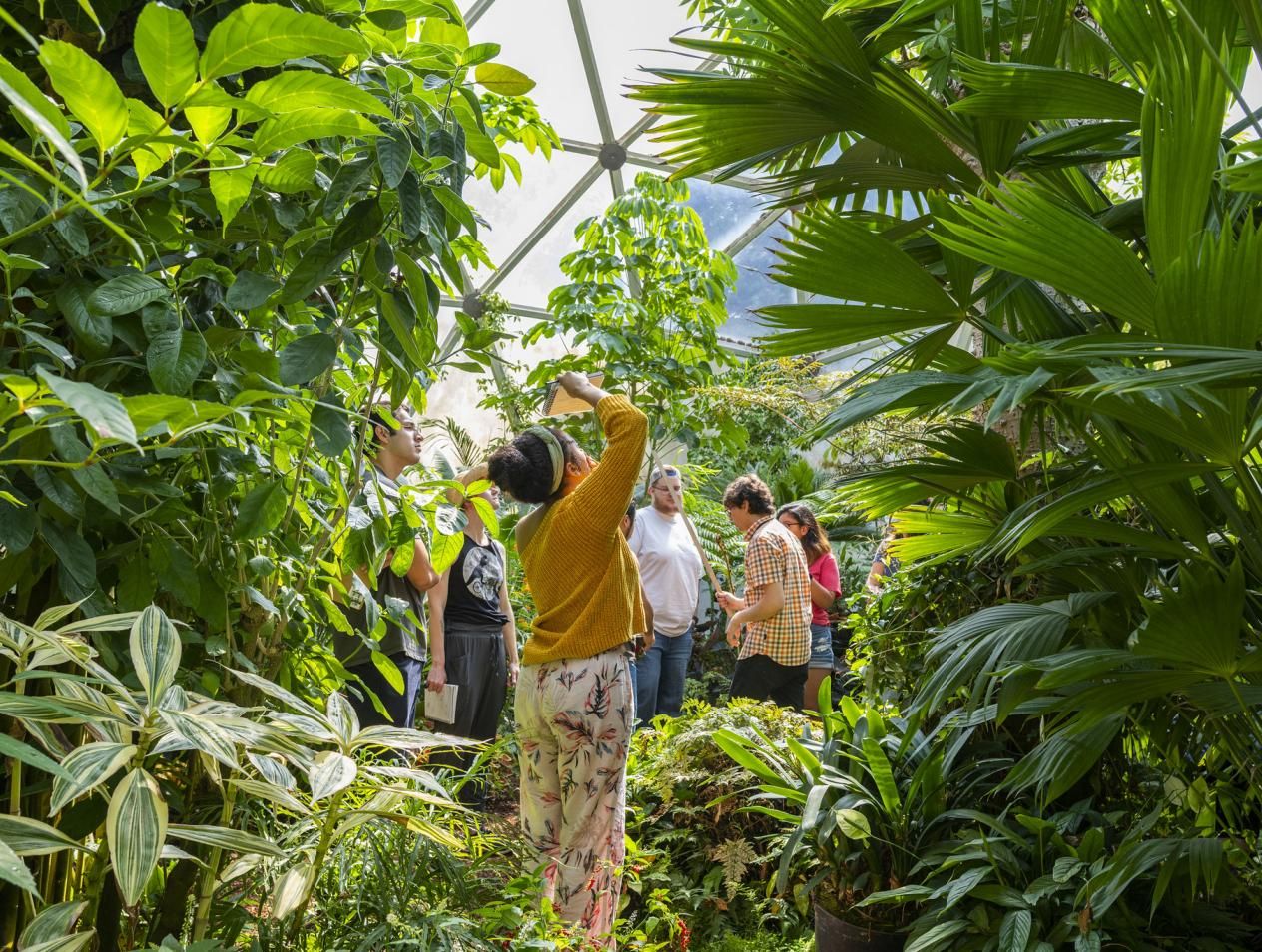Breadcrumb
Achievements
Find out what our students, faculty, and staff are being recognized for.
Allison Bronson
Biological Sciences
Dr. Allison Bronson received a National Science Foundation grant to study the inner ear structures of sharks, using CT scanning and Magnetic Resonance Imaging (MRI). This work will evaluate whether ear shape differs between shark species living in different habitats, potentially developing a predictive model for inferring the ecology of extinct fishes. The project involves collaborators at the University of Michigan, University of North Carolina WIlmington, University of Birmingham, and University of Auckland, and will use specimens from Cal Poly Humboldt’s Fish Collection and other museums throughout the United States.
Rachael Wade
Biological Sciences
Dr. Rachael Wade received a 2024 Norma J. Lang Fellowship award from the Phycological Society of America. The award supports genome sequencing of the red alga, C. berteroi. While algal species tend to assume restricted ranges, C. berteroi is widespread and can be found across nearshore environments in the Atlantic and Pacific Oceans. Dr. Wade’s work will explore this cosmopolitanism, and data from the study will later be used to reconstruct the species’ ancestral range, and identify adaptive traits that have facilitated its distribution. Understanding drivers of cosmopolitanism can increase understanding of algal adaptation in the face of climate change.
Rachael Wade
Biological Sciences
Dr. Rachael Wade received a 2024 Norma J. Lang Fellowship award from the Phycological Society of America. The award supports genome sequencing of the red alga, C. berteroi. While algal species tend to assume restricted ranges, C. berteroi is widespread, and can be found across nearshore environments in the Atlantic and Pacific Oceans. Dr. Wade’s work will explore this cosmopolitanism, and data from the study will later be used to reconstruct the species’ ancestral range, and identify adaptive traits that have facilitated its’ distribution. Understanding drivers of cosmopolitanism can increase understanding of algal adaptation in the face of climate change.
Oscar M. Vargas-Hernandez
Biological Sciences
Dr. Oscar Vargas and collaborators have published a new scientific article "Towards a Monophyletic Infrageneric Circumscription of Adesmia DC. (Dalbergieae, Leguminosae): a Taxonomic Revision in Adesmia series Adesmia" in the journal Phytotaxa. https://phytotaxa.mapress.com/pt/article/view/phytotaxa.639.1.1
Oscar M. Vargas-Hernandez
Biological Sciences
NSF has awarded a grant to Dr. Oscar Vargas to study the origin and genetics of rare plants in California. The grant includes funds for supporting a diverse students from participate in the project, and it aims to study four rare plants in the state. https://www.nsf.gov/awardsearch/showAward?AWD_ID=2334849
Pedro Peloso, Gisele Santana, Davi Pantoja, Geovania da Silva, Maiume da Silva, Gleomar Maschio (only Peloso is CSU faculty).
Biological Sciences
Professor Pedro Peloso was a co-author in the paper "Endemic amphibians of the Cerrado and Caatinga: species richness, geographic range and conservation" published in the Herpetological Journal. Their work highlights the distribution and conservation status of all species of amphibians that exist in two major ecoregions in Brazil (Cerrado and Caatinga). Based on geographic distribution data, they recorded 100 species that do not exist anywhere else in the world: 82 from the Cerrado and 18 from the Caatinga. They also discuss the role of formally protected areas in safeguarding threatened species in these ecoregions.
Rachael M. Wade
Biological Sciences
Rachael M. Wade, Assistant Professor of Biological Sciences was awarded a grant for studying ecologically driven morphological plasticity in coralline algae. Her research focuses on the diversity of marine macroalgae and the evolutionary processes that determine and support their current distributions. Macroalgae are often poor dispersers, so understanding how they've diversified and have come to be globally distributed, in some cases. Her work often relies on the incorporation of historical specimens, with genetic resources derived from 19th-century collections, to better understand their diversity and taxonomy.
Silvia E Pavan and students
Biological Sciences
Silvia E Pavan, Assistant Professor of Biological Sciences was awarded a grant for presenting research, with students, at the 2024 Meeting of the American Society of Mammologists. Sylvia is broadly interested in biodiversity, and she works with fieldwork exploration and collections-based research to discover and describe species and to understand species diversity and evolution. Her research has been focused on different groups of mammals, especially marsupials and rodents.
Pedro Peloso, Brandice Guerra
Biological Sciences
Professors Pedro Peloso (Biological Sciences) and Brandice Guerra received a grant from the Maxwell/Hanrahan Foundation (www.maxwell-hanrahan.org) to support an illustration internship at Cal Poly Humboldt. An international student will visit our community this spring to work in a project that aims to raise awareness about amphibian extinctions globally. You can read more about the internship here: https://now.humboldt.edu/news/new-scientific-illustration-internship-gi…
Alana Chin
Biological Sciences
Dr. Alana Chin received a grant to support research looking into factors impacting redwood tree fog-uptake. Redwood trees absorb water from fog, making it a key provider of water in the summer months. However, as the climate changes, so have fog characteristics, increasing the need to understand how redwoods are acclimating to changes in fog. The project will assess and monitor fog absorption capacity in redwoods, and is a critical next step in our ability to predict the impacts of climate change on redwoods and select nursery stock for restoration.
Funding comes from the Save the Redwoods League.






